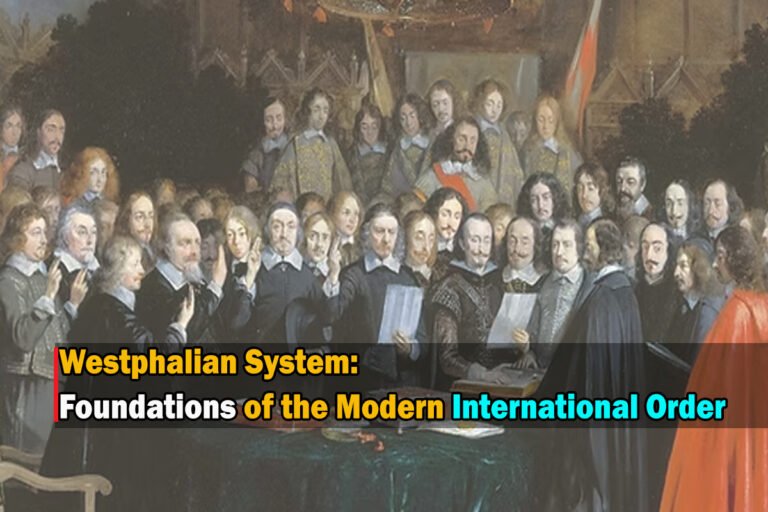The Westphalian system, established through a series of peace treaties in 1648, remains a foundational concept in modern international relations. Emerging from the devastation of the Thirty Years’ War (1618–1648)—one of Europe’s most destructive and complex conflicts—it introduced key principles that continue to guide diplomacy, sovereignty, and legal norms worldwide.
What Sparked the Westphalian Peace?
The Holy Roman Empire’s Catholic and Protestant nations first engaged in a religious war that lasted for thirty years. However, it soon evolved into a broader power struggle involving many of Europe’s great powers, including Spain, France, Austria, and Sweden.
Ideological differences and long-standing suspicions were at the core of the conflict:
- Protestants feared domination by “bloodthirsty Jesuits” allied with Rome and Madrid.
- Catholics viewed Protestant groups, especially Calvinists, as threats to imperial unity and the authority of the Catholic Church.
A combination of national aspirations, constitutional disagreements, and foreign interventions caused the conflict to intensify, resulting in extensive damage and fatalities throughout Central Europe.
The Westphalian Peace and Its Aftereffects
Following three decades of destruction and no clear winner, the warring forces were compelled to engage in negotiations. In addition to putting an end to the conflict, the ensuing accords, generally referred to as the Peace of Westphalia, established the framework for the modern international state system.
The treaties introduced three core principles that redefined how nations interact:
1. State Sovereignty
Each state has complete control over its internal affairs, governance, and territory.
2. Legal Equality of States
International law treats all governments equally, regardless of their size or power.
3. Non-Intervention
No foreign entity should meddle in another sovereign state’s internal affairs.
These foundational ideas formed the basis for modern diplomacy and international law. They still have an impact on foreign policy and conflict resolution, and they helped create later organizations like the United Nations.
Relevance in the 21st Century
Despite evolving global challenges, the Westphalian model remains deeply relevant today. It continues to inform the structure of international organizations, legal frameworks, and bilateral agreements.
Some modern thinkers promote the idea of global governance to manage transnational issues like climate change, pandemics, or cyber threats. However, many political realists argue that a cosmopolitan, multipolar world order—rooted in Westphalian principles—is more stable and achievable.
By emphasizing sovereignty, legal equality, and mutual respect, the Westphalian system provides a durable framework for cooperation in a world of diverse values, interests, and systems of governance.


